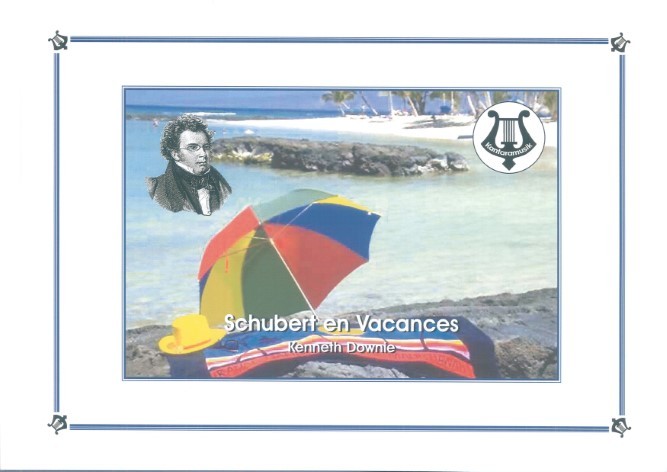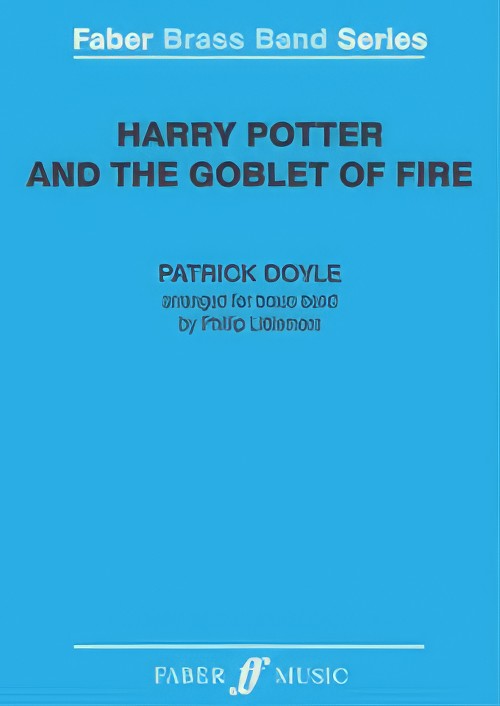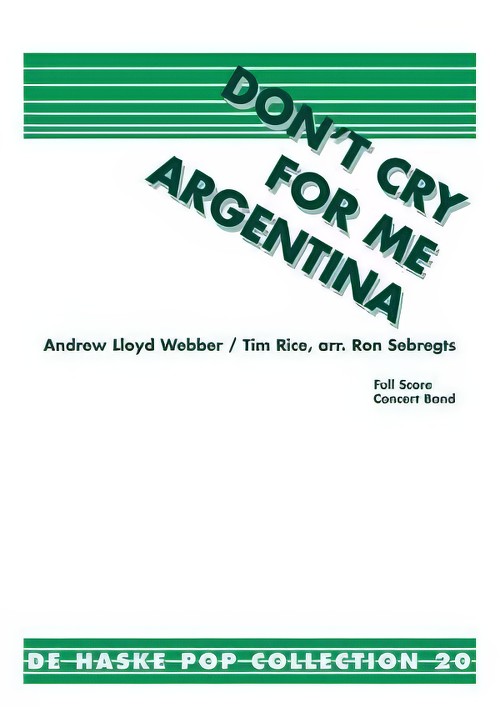Results
-
£59.99
Circle of Life (Brass Band - Score and Parts)
The Lion King, the hugely successful Disney animated film, tells the story of Simba, a young lion trying to escape his past. The film opens with the impressive song Circle of Life which immediately evokes the Disney magic. The music was written by Elton John and the text is by Tim Rice, a successful lyricist in the world of musicals. This arrangement for brass band by Klaas van der Woude has definitely done the song justice. 05:10
Estimated dispatch 7-14 working days
-
£34.95
GYMNOPEDIE No.1 (Brass Band Set) - Satie - Brian Bowen
This is a transcription for brass band of the first, and most well-known, of Erik Satie's three Gymnopedies for piano which were composed in 1888. All three are similar melodically and pianistically. However, the first and last are more well-known, partly due to the later orchestrations by Debussy. Tenor Horn and Eb Bass mutes are requested by the arranger and will enhance the transcription if available.
Estimated dispatch 7-14 working days
-
 £49.95
£49.95Schubert En Vacances (Brass Band - Score and Parts) - Downie, Kenneth
Commissioned for the 2004 Bernese Cantonal Music Festival this is a bright, engaging suite in three movements highlighting a theme written by the great 19th Century Viennese master.
Estimated dispatch 7-14 working days
-
 £24.95
£24.95Schubert En Vacances (Brass Band - Score Only) - Downie, Kenneth
Commissioned for the 2004 Bernese Cantonal Music Festival this is a bright, engaging suite in three movements highlighting a theme written by the great 19th Century Viennese master.
Estimated dispatch 7-14 working days
-
 £50.00
£50.00Harry Potter and the Goblet of Fire (Brass Band - Score and Parts) - Doyle, Patrick - Littlemore, Phillip
Harry Potter and The Goblet of Fire is the pivotal fourth novel in the seven-part tale of Harry Potter's training as a wizard and his coming of age. This suite for brass band includes the themes Harry In Winter, The Quidditch World Cup, Hogwarts' Hymn, Hogwarts' March and The Death Of Cedric. Suitable for Advanced Youth/3rd Section Bands and above. Duration: 7.00
Estimated dispatch 7-14 working days
-
 £59.99
£59.99Don't Cry for Me Argentina (from Evita) (Brass Band - Score and Parts) - Lloyd Webber & Rice - Sebregts, Ron
Don't Cry for me Argentina is the best-known song from the 1976 musical Evita. It was sung by Eva Peron when she was addressing the crowds amassed in the square below her balcony. More recently it was a hit for Madonna, who sang it in the 1996 film version of Evita. This arrangement for brass band retains the broad emotive melody of the original together with its intense emotion.Duration: 4:45
Estimated dispatch 7-14 working days
-
 £49.95
£49.95FUNICULI, FUNICULA (Brass Band Set) - Noble, Harold
Please note: This is a facsimile edition for Brass Band. TTBB parts available separately
Estimated dispatch 7-14 working days
-
£64.99
Highlights from Star Trek Into Darkness (Brass Band - Score and Parts)
Michael Giacchino's soundtrack for the highly anticipated follow-up to 2009's Star Trek is dramatic and evocative. Using a mixture of familiar previous themes along with new material, this medley for brass band brings the excitement and drama of the film to the concert stage.
Estimated dispatch 7-14 working days
-
 £49.95
£49.95WHEN THE SAINTS (Brass Band - Score and Parts) - Vinter, Gilbert
Please note: This is a facsimile edition for Brass Band. TTBB parts available separately
Estimated dispatch 7-14 working days
-
£44.95
LITTLE RUSSIAN, Excerpts from the (Brass Band Set) - Tchaikovsky - William Gordon
The nickname 'Little Russia' refers to the Ukraine from where folk-songs used by Tchaikovsky in his second symphony come from. This is a transcription of excerpts from the exciting finale of that symphony.
Estimated dispatch 7-14 working days
